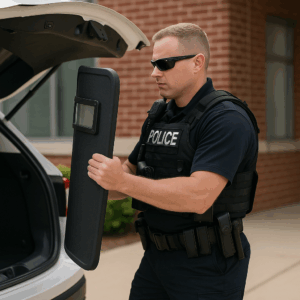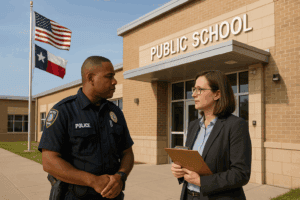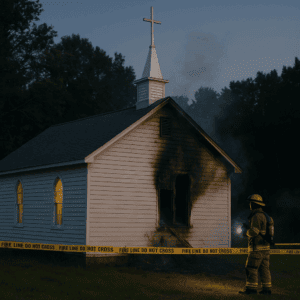Church security teams play a vital role in ensuring the safety and well-being of the congregation members and the church property. Effective communication is a critical skill for these teams, as it allows them to respond efficiently to emergency situations and coordinate their efforts seamlessly. By developing and refining their communication skills, church security team members can enhance their ability to protect their community and maintain order during events and services.
One aspect of effective communication is being able to convey information clearly and concisely to all members of the security team, as well as to the congregation when necessary. This may involve using appropriate language, tone, and body language to ensure that messages are easily understood by everyone involved. Moreover, communication should flow smoothly among the team members, enabling them to share vital information, updates, or instructions without delay.
Another essential component of strong communication skills in church security teams is active listening. This involves paying close attention to what others are saying, processing that information, and responding thoughtfully. By practicing active listening, security team members can better understand the needs and concerns of their fellow team members and the congregation, ultimately enabling them to make informed decisions that promote safety and well-being within the church environment.
Church Security Fundamentals
To ensure the safety of churches, their congregations, and surrounding communities, it is essential to develop and implement effective communication skills within church security teams. By adhering to a set of church security fundamentals, teams can proactively address safety concerns and foster a security-conscious environment.
First, it is important for church leadership and the volunteer security team to work closely together. This collaboration ensures that the security plan aligns with the church’s values and supports the needs of the congregation. Open lines of communication between leadership and the security team will lead to a more seamless integration of safety measures into the church’s overall operations.
Regular training is crucial for maintaining a well-prepared security team. Members should stay up to date with the latest security techniques, protocols, and best practices. Training sessions can cover topics like emergency response, first aid, and threat assessment. Conducting drills and simulations will also help the team develop a confident and knowledgeable demeanor, enabling them to handle various safety scenarios.
The use of appropriate security tools, like video surveillance, security systems, and two-way radios, can enrich the team’s communication capabilities and contribute to a safer environment for the congregation. Incorporating these tools into the church security plan will help the team effectively respond to any potential incidents.
Establishing clear protocols for reporting incidents and handling emergencies is another vital element of church security fundamentals. Outline the steps to be taken in various situations, and ensure that all team members are familiar with these procedures. By doing so, the security team can respond quickly and efficiently to any potential threats.
In conclusion, fostering effective communication skills within church security teams is essential for ensuring a safe environment for the congregation and wider community. By adhering to these church security fundamentals, teams can work confidently and proactively to address potential safety concerns and maintain a secure atmosphere for all church members.
Roles and Responsibilities
Effective communication skills are crucial for a church security team to function efficiently and ensure the safety of the congregation. Church security teams typically consist of law enforcement, security professionals, volunteers, and leadership members working together to create a safe environment for worship and other church-related activities.
The security team plays a vital role in developing and implementing a comprehensive security plan tailored to the unique needs and risks of the church. Team members must be familiar with emergency response procedures, building evacuation plans, and other safety protocols. Proper communication among team members helps to facilitate quick decision-making, seamless information flow, and an effective shared response to emergencies.
Volunteers are an essential part of church security operations, often serving as the eyes and ears of the security team. They help monitor entrances, exits, and other areas for potential threats. Communication training for volunteers ensures that they know how to report any suspicious activities or incidents effectively. Regular briefings and debriefings with the security team enable a constant flow of information between leadership and volunteers.
Leadership plays a critical role in church security by setting the tone for the entire safety operation. They coordinate the efforts of security professionals and volunteers, communicate expectations, and provide guidance and encouragement to their team. Additionally, leadership is responsible for establishing and reinforcing the importance of clear communication and teamwork.
Teamwork is at the heart of an effective church security operation, ensuring that each member stays informed of the overall strategy, roles, and responsibilities. By cultivating a cooperative mindset, the security team is better equipped to respond to emergencies, share information, and anticipate potential threats.
Emergency response is a crucial aspect of a church security plan, and effective communication is the foundation of a swift and efficient response. All team members must be well-versed in emergency protocols, and a reliable communication system is necessary for coordinating the team’s actions. In situations where every second counts, clear communication can make the difference between a successful outcome and a potentially disastrous one.
In summary, a successful church security team requires a clear understanding of their roles and responsibilities and effective communication within the team. By fostering a strong sense of teamwork, emphasizing leadership, and ensuring proficiency in emergency response protocols, church security teams can create a safe and secure environment for their congregations.
Effective Communication Techniques
Effective communication is vital for church security teams to ensure the safety and well-being of their congregation. Developing strong communication skills enables security personnel to handle various situations with confidence and clarity.
One crucial communication skill for church security teams is active listening. Active listening involves paying close attention to what is being said, asking clarifying questions, and confirming understanding before proceeding. This helps to establish connections with the congregation and ensures that the team has accurate information during emergency situations.
De-escalation techniques are another essential aspect of communication for security teams. When tensions arise, knowing how to calmly and effectively diffuse the situation can prevent further escalation and potential danger. Security personnel should be trained to identify signs of distress, and maintain a calm demeanor while communicating clearly and confidently. Employing empathy, offering solutions, and providing reassurance can facilitate de-escalation.
Developing a strong sense of situational awareness benefits the team by helping them to anticipate potential security threats and react proactively. This involves being mindful of the environment, noticing any unusual or suspicious behavior, and communicating observations to the rest of the team. Situational awareness extends to understanding the layout of the church and being aware of potential hazards and emergency exits.
Vigilance is another critical aspect of effective communication for church security teams. Security personnel must remain alert at all times, both physically and mentally. Regular communication with team members and keeping an eye on the congregation and surrounding areas ensures that potential threats are quickly identified and addressed.
Utilizing various forms of communication such as verbal, non-verbal, and electronic can also improve the effectiveness of the church security team. For example, discreet hand signals can be employed in situations where verbal communication may not be appropriate or possible.
Incorporating these communication techniques in a church security team’s training ensures the safety and well-being of the congregation. A team that communicates effectively can confidently navigate any situation that may arise, providing a secure and peaceful environment for worship.
Training and Protocols
Effective communication is crucial for church security teams to ensure the safety of their congregation. To achieve this, proper training and the establishment of protocols are essential steps that need to be followed.
Training for church security teams should include honing their verbal, written, and electronic communication skills. It is important to establish a clear chain of command so that all members know their roles and responsibilities during emergencies. Team members should be trained in handling a variety of situations, such as medical incidents, fires, and security breaches. By incorporating scenario-based exercises, teams can practice response techniques and improve coordination.
Well-established protocols serve as a guideline for church security teams during emergencies and special events. These protocols should outline the procedures to follow in case of different incidents, including accidents, fires, or security threats. For instance, fire protocols might include evacuation routes, use of fire extinguishers, and the designated person responsible for contacting emergency services.
Best practices for church security teams include maintaining regular communication with church leaders and church members. This ensures that everyone is informed and prepared for any potential risks or emergencies. Communication channels, such as two-way radios, should be incorporated into the team’s operations for efficient coordination during special events or emergency situations.
Furthermore, security teams should conduct ongoing evaluations and updates of their training and protocols. This helps to identify areas for improvement, adapt to evolving threats, and ensure the most effective response strategies are in place.
In summary, proper training and established protocols are vital to the successful operation of church security teams. Effective communication skills combined with a well-prepared team result in a safer environment for the church community. A knowledgeable and confident security team is instrumental in protecting the congregation and preserving the sense of peace within their place of worship.
Communication Tools for Team Coordination
Effective communication is vital for church security teams to ensure a safe and secure environment. To achieve this, the team must have access to a variety of communication tools that enable clear, concise, and timely information sharing. This section outlines some essential tools for team coordination.
Digital platforms like Slack and Microsoft Teams allow church security teams to collaborate, share information, and stay updated about potential security threats. These platforms also provide integrations with other applications, making it easy to manage tasks, documents, and communication channels all in one place.
Two-way radios are also an indispensable tool for security teams. They provide instant, real-time communication and help maintain constant contact among team members. Radios play a crucial role in case of emergencies or when the internet connection is unreliable. Additionally, they allow for quick response times and easy coordination during events and services.
Phone calls and text messages are traditional yet essential methods of communication between team members. While they might not offer the same level of integration and collaboration as digital platforms, they still provide a reliable and efficient way to contact individuals or groups when necessary. This can be especially useful in situations where a secondary communication method is needed or for reaching volunteers and congregants who may not be as familiar with digital communication tools.
In summary, church security teams can effectively coordinate their efforts using a combination of digital platforms, two-way radios, phone calls, and text messages. By incorporating these tools, teams can communicate efficiently, improving their ability to anticipate and address potential security issues.
Church Communication Strategy
An effective church communication strategy relies on a combination of church communication best practices, consistent messaging, and a well-defined communication plan. Such a strategy should address both internal and external communication and should make use of various channels of communication to ensure that everyone stays informed and engaged.
A key aspect of a successful church communication strategy is consistent messaging. This refers to the presentation of a unified and coherent message across all communication channels, ensuring that the audience receives the same message regardless of the medium used. It is essential to align church communication with the organization’s objectives and fundamental purpose to maintain consistent messaging.
Developing a communication plan is integral to an effective church communication strategy. This plan should outline the goals, audience, key messages, communication channels, and the timeline of communication efforts. Proper planning can ensure that communication efforts are streamlined, well-coordinated, and purposeful.
External communication is essential to engage and expand the church community beyond its members. This may involve social media, newsletters, or announcements in local newspapers. By targeting a broader audience, the church can showcase its programs and reach out to potential attendees or supporters.
Utilizing various channels of communication multi-channel communications can help a church effectively convey its message to different segments of the audience. This may include traditional methods like printed materials, phone calls, and face-to-face meetings, as well as digital avenues like websites, email campaigns, and social media platforms.
A follow-up strategy is crucial to maintaining engagement and emphasizing the impact of the church’s communication efforts. This may involve sending follow-up emails or messages after events, meetings, or significant announcements. By maintaining regular communication, the church can foster a sense of community and involvement.
Engaging the Congregation and Community
Effective communication skills are essential for church security teams as they play a crucial role in engaging the congregation and community. This engagement is vital to ensure the safety of church members and build a sense of trust among members.
One important aspect of engagement is providing clear and concise announcements about security measures and protocols in place. This can be done during weekly services, special events, or through digital channels like newsletters and social media. Communication should be straightforward and easily understood, ensuring that churchgoers are aware of their roles in maintaining a secure environment.
Additionally, incorporating security messages in sermons can be an effective way to keep the congregation informed about safety. Pastoral leaders can draw on biblical stories to emphasize the importance of security and highlight how the church is working to protect its members. This approach not only reinforces safety measures but also helps to build a spiritual connection between the congregation and the church’s security efforts.
Building relationships with the community is another essential aspect of engagement. Church security teams can hold regular meetings, workshops, or training sessions to involve community members in safety planning and implementation. These events can serve as opportunities to share best practices, discuss common challenges, and encourage collaboration among neighboring churches and organizations.
Finally, make use of storytelling to create a deeper understanding of security measures. Recounting real-life incidents or near misses can bring home the importance of being vigilant. This, in turn, can foster a sense of ownership and responsibility among members, leading to a collective effort to maintain a secure and welcoming church environment.
In conclusion, engaging the congregation and community effectively requires a blend of clear communication, spiritual connection, collaboration, and storytelling. By adopting these strategies, church security teams can foster an atmosphere of trust, safety, and unity within their congregations and the broader community.
Emergency and Crisis Management

Effective communication skills are essential for church security teams in emergency and crisis management situations. In such instances, it is crucial for team members to be confident, knowledgeable, neutral, and clear when conveying information to others.
One vital aspect of emergency and crisis management is having a well-developed security plan. This plan should detail the roles and responsibilities of team members, communication channels, and procedures to follow in different emergency scenarios. It is important for all members to be familiar with the plan and regularly review and update it to ensure its effectiveness.
Leadership plays a significant role in fostering effective communication within the security team. The designated leader should be able to assess situations quickly, make informed decisions, and communicate those decisions clearly to the entire team. Strong leaders also remain composed under pressure, serving as a valuable resource and support for team members during emergencies.
In the event of a crisis, emergency response becomes the priority. This involves quickly sharing relevant information among team members and coordinating efforts to address the situation. Reliable and efficient communication channels, such as radios and messaging apps, are essential in enabling real-time information transfer, ensuring team members are aware of ongoing developments and can act accordingly.
In addition to these tools and processes, some key principles to foster effective communication within the church security team include:
- Utilizing clear and concise language when communicating, avoiding jargon and technical terms wherever possible
- Practicing active listening, ensuring everyone is heard and understood, and confirming the message has been received
- Encouraging team members to voice any concerns or share ideas that could help improve the security plan or response during emergencies
- Prioritizing the safety and well-being of the congregation and the communities served by the church
- Keeping up to date with emergency management techniques and developments to enhance the overall preparedness and effectiveness of the church security team
By following these guidelines and integrating effective communication skills into emergency and crisis management strategies, church security teams can greatly contribute to the safety and security of their congregations.
Collaboration and Feedback
Effective communication skills are crucial for church security teams to ensure the safety of the congregation and staff. One essential aspect of this communication is collaboration, which includes working together as a team, sharing ideas, discussing vital information, and providing feedback to improve performance.
Collaboration among church security team members enables them to be more effective in assessing potential risks and responding to various situations. When team members collaborate, they can pool their knowledge, experience, and resources to identify potential issues and develop appropriate responses. By engaging in regular discussions, church security teams can address concerns, make necessary adjustments, and ensure a secure environment.
Feedback plays a significant role in the collaborative process of a church security team. Team members should be open to providing and receiving feedback to improve their overall communication and performance. Constructive feedback allows team members to recognize their strengths and weaknesses, which can be addressed through ongoing training or mentoring. Additionally, feedback from the congregation can help identify any areas of concern or potential improvements.
For example, handling sensitive information such as donations or personal data requires proper communication and confidentiality. Ensuring that everyone on the church security team is aware of protocols and procedures for handling such information is crucial. Regular discussions and feedback can help identify any lapses or needed adjustments, contributing to the team’s overall efficiency.
In summary, collaboration and feedback are vital components of effective communication for church security teams. By working together, discussing important matters, and providing constructive feedback, these teams can operate more efficiently, contribute to a safer environment, and protect sensitive information.
Frequently Asked Questions
What are essential communication protocols for church security teams?
Effective communication protocols for church security teams include establishing a clear chain of command, using standardized terminology, and developing a comprehensive emergency response plan. It is crucial for team members to know who to report to and how to reach them, especially in emergency situations. Clear communication helps in preventing security incidents in churches.
How can church security teams improve communication during emergencies?
During emergencies, time is of the essence. Church security teams should prioritize communication that is clear, concise, and accurate. Emphasize the importance of using easily understood language, avoiding jargon, and practicing active listening. Conducting training and drills can also help improve emergency communication skills.
What training exercises can enhance communication skills for church security members?
Training exercises like tabletop scenarios, role-playing activities, and full-scale simulation drills can enhance communication skills for church security members. These exercises help build confidence, teach effective crisis response, and demonstrate the importance of teamwork in high-pressure situations. Regular training with realistic scenarios can improve team performance during actual emergencies.
How important is radio communication for church security teams?
Radio communication is vital for church security teams as it provides a reliable, fast, and efficient way of sharing information among team members. It enables real-time communication, coordination, and response to any security-related incidents. It is essential to invest in quality radio equipment and train the security team in proper radio usage and etiquette.
What are the best practices for information sharing among church security team members?
The best practices for information sharing among church security team members include establishing regular communication channels, such as meetings, briefings, and debriefings, and setting up a clear system for reporting incidents. This can involve using tools like incident reports, situation updates, and email notifications. Encourage team members to maintain open lines of communication and share relevant information in a timely, organized manner.
How can a church security team develop clear and concise communication during crisis situations?
Developing clear and concise communication during crisis situations requires practice, discipline, and a focus on the fundamentals. Church security teams should establish consistent procedures for communication in emergencies, such as designated roles, pre-defined messages, and response protocols. Regular training and drills can help team members become more comfortable and efficient in their communication during high-stress situations.








